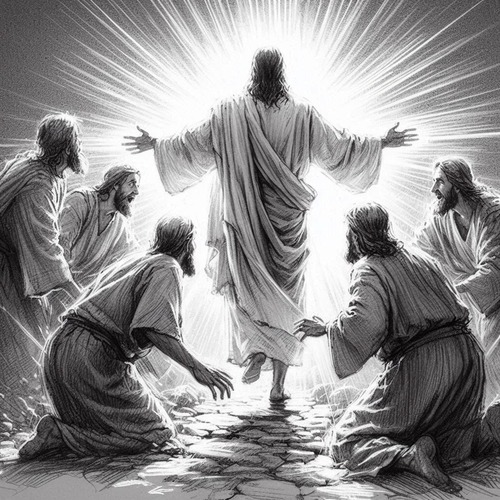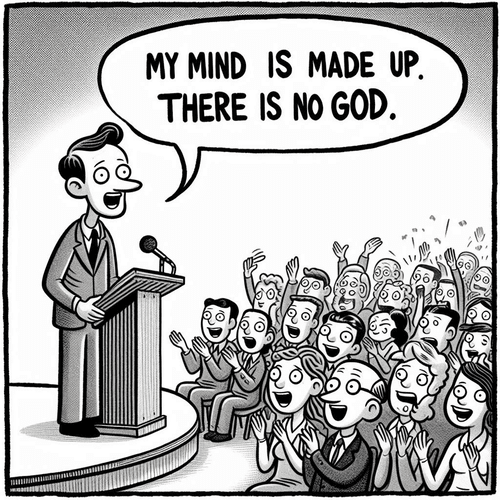Evaluating the Truthfulness of the Statement “There Is a God”
Testing the Truth Claim “There Is a God”
In recent weeks, we’ve explored various arguments and evidence regarding the core question—’Does God exist?’ We’ve examined scientific evidence and philosophical arguments, even wrestled with objections from multiple angles.
Now let’s evaluate the truthfulness of the statement, “There is a God” by putting it through our three-fold filter—of internal coherence, external correspondence, and functional adequacy.
Internal Coherence (Logical Consistency) First, is the concept of God’s existence logically consistent and free of internal contradictions? The arguments we’ve covered, including Thomas Aquinas’ Quintuple, the Kalam cosmological argument, the moral argument, and the ontological argument, all strive to present a rationally coherent case for God’s reality.
A being that is described as the greatest conceivable, all-powerful, all-knowing, and purely actual cause is not inherently incoherent or self-contradictory. In fact, such a Being would provide the metaphysical foundation to make better sense of abstract philosophical concepts such as being itself. The internal consistency aspect, then, weighs in favor of God’s existence.
External Correspondence (Factual Adequacy) Does the statement “There is a God” align with objective reality and observable facts about the universe? This is where scientific evidence around the origin of the universe, cosmic fine-tuning, biological complexity, and human consciousness factors in.
While evolutionary theory explains diversity within life, it does not ultimately account for the origin of the universe or the specified complexity encoded in even the simplest replicating cell. The cosmic fine-tuning of the fundamental laws and constants of physics points to intelligent design. And philosophical arguments such as the moral argument and design argument fit these observable facts about human nature and the cosmos.
The broad statement affirming a Creator God, thus, coheres impressively with our knowledge of reality, more than a strictly materialistic, no-God alternative does. The external correspondence consideration also supports God’s existence.
Functional Adequacy (Liveability) But perhaps most pivotally, does the statement “There is a God” lead to a higher quality of life in practice? In other words, is belief in God functionally adequate, generating meaning, purpose, objective morality, and human flourishing?
Across societies and in our own personal experience, we’ve seen robust belief in God, cultivated through religious traditions, provides an unparalleled foundation for human thriving. Concepts of human dignity, ethics, sacrificial love, charity, the value of knowledge and reason itself—all find their roots in a transcendent source of meaning and value.
Purely materialistic worldviews that deny God’s existence, by contrast, undermine human worth and struggle to ground objective morality and significance. Time and again, history has shown the cultural devastation that results. This functional adequacy aspect points powerfully toward the validity of the statement “There is a God.”
When we combine all three aspects of truth—internal coherence, external correspondence, and most compellingly, functional adequacy—the cumulative evidence resoundingly affirms the statement “There is a God” over the negation. While sceptics will always raise challenges, the burden of proof has been more than adequately met.
Now for the Next Challenge: Of course, merely believing in God’s existence is insufficient; that solves only part of the problem. Now we must determine who this God is from among the millions of proposed deities. Simply affirming some Supreme Being does little to identify the true nature and personality of God.
Evaluating the coherence, factual alignment, and liveability of each religion’s God claims becomes essential. Only by critically testing these truth claims as well can we recognize who the real God is from among the multitude of alternatives.
Related Reads
Three Vital Tests to Evaluate Truth Claims
The Three-Fold Filter: Testing the Truth Claims of the Resurrection
Examining the Truthfulness of the Statement “There is no God”
Editor's Pick

Why Do People Hate the Doctrine of Election?
…WHEN THEY REALLY SHOULDN’T Few Bible doctrines provoke stronger reactions than election. The idea that God chose some for salvation [...]

The Doctrine of Providence: Does God Really Govern All Things?
You’re sitting in the doctor’s office when the diagnosis lands like a thunderclap. Your mind races: Why this? Why now? [...]

No Decay, No Defeat: What It Means That Christ’s Body Saw No Corruption
On the Day of Pentecost, Peter stood before thousands and made a startling claim: David's body decayed in the tomb, [...]
SUPPORT US:
Feel the Holy Spirit's gentle nudge to partner with us?
Donate Online:
Account Name: TRUTHS TO DIE FOR FOUNDATION
Account Number: 10243565459
Bank IFSC: IDFB0043391
Bank Name: IDFC FIRST BANK






